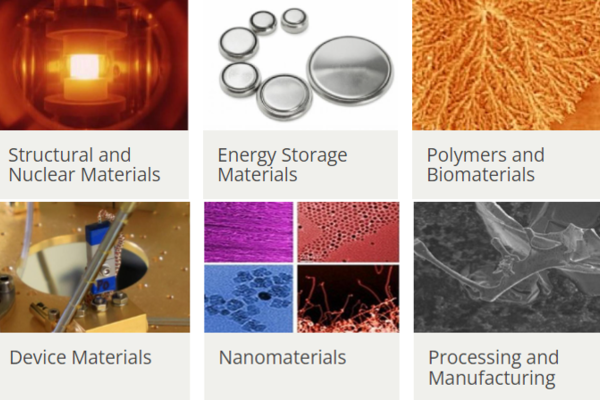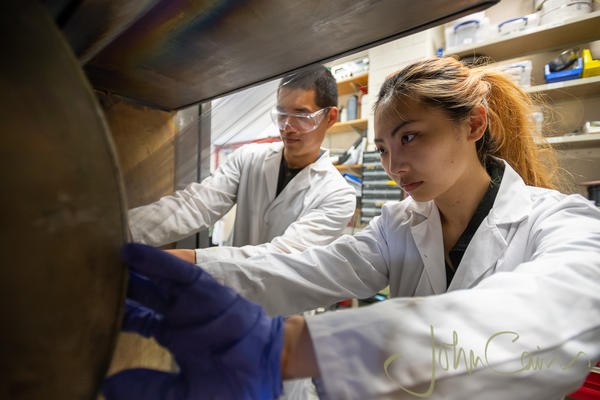Postgraduate Studies in Materials Science
Advances in Materials Science will underpin the technological developments that we will require through the 21st century to combat climate change, provide global supplies of clean and plentiful energy, ensure the sustainability of manufacturing processes and deliver enhanced healthcare technologies.
In the Department of Materials at Oxford we have research groups performing cutting edge research in areas as diverse as superconducting materials for nuclear fusion, development of cutting-edge materials for clean energy generation and storage, design and manufacture of next generation devices for quantum information processing and production of alloys for a circular economy. To enable this our department has world leading experimental facilities for materials processing, manufacture, degradation and characterisation as well as groups specialising in developing the theoretical and computational materials science methods that underpin these.
Our vibrant department consists of around 200 research students working alongside 30 academic staff, 13 Senior Research Fellows, and 80 postdoctoral researchers. Our research students are of many nationalities and come to the department from diverse scientific backgrounds. Many are graduates in the Materials Science, Physics, Chemistry and Engineering but we also recruit students with backgrounds in Mathematics, Earth Sciences and Biology.
Every year we look to recruit around 50 DPhil and Masters students across the full range of departments research activities. Some DPhil projects will be run through one of the four CDTs we are part of; Fusion Energy, IMAT, Superconductivity and Materials 4.0. If you wish to be considered for these CDTs there is a separate application form. You may apply for up to three different programs. For DPhils there is funding available through both Industrial, University and EPSRC scholarships and we also encourage applications from students looking to secure funding from their home countries or other sources.








